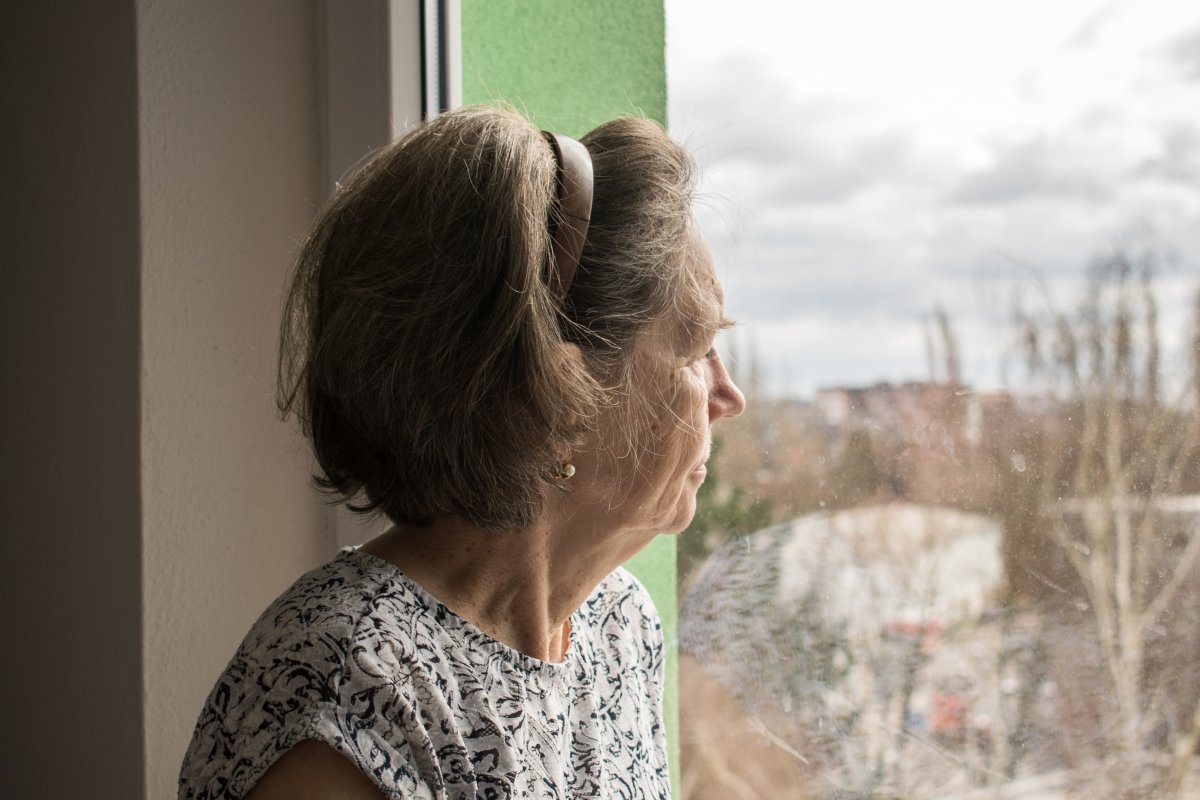It wasn’t the first time Adam had called for help about his sister abusing their elderly parents. “If my sister had been in their home any longer, they were going to have a nervous breakdown,” he says. “I’ve had her removed numerous times over the years, but my parents always gave in.

“Just imagine the worst things coming out of someone’s mouth to your own parents. They were prisoners in their own home. They could hardly leave the bedroom.”
That’s where Catholic Social Services (CSS) came in. The organization runs the Elder Abuse Resource and Supports (EARS) program in Edmonton. “They worked to have her removed from the premises. And then they made sure my parents knew she couldn’t come back and if she did, to call 911,” says Adam, whose name has been changed to protect his family’s privacy. “Things settled down pretty quickly. Though you’re never really settled after that.”
Adam is one of hundreds of family members in Alberta who have called CSS to get help for a senior citizen in their life. And he’s not the last.
The coronavirus pandemic has only amplified the need for EARS and the many other programs run by CSS, according to Eoin Murray, the organization’s director of development and community relations.
The overall demand for CSS programs is up by around 14 per cent in Edmonton and around 17 per cent in Red Deer, Murray says. Calls about seniors facing isolation and abuse have increased by about one-third.
That’s why donor support through Sign of Hope, the agency’s charitable fundraising arm, is so critical. A fundraising campaign is currently under way to raise $2 million by the end of December and has raised $1.6 million to date.

Get daily National news
READ MORE: Social service agency sees higher demand for parenting classes and more amid COVID-19
Gurjot Kaur, team lead for EARS, notes rising demand for the program amid the pandemic as well. “We’ve also seen family violence increase, and the number of calls for the need for services around that have increased since the pandemic,” Kaur says. “There are a lot of people home and trapped with people for a long time.”
This includes people like Maria, whose name has also been changed to protect her privacy. Maria’s daughter moved in with her elderly mother after losing her job, Kaur says, and what was supposed to be a short-term stay lasted more than a year. In that time, Maria’s daughter’s addictions emerged, and Maria was overwhelmed by handling all the bills and housework.
Maria was also afraid to ask her daughter for help. “She’d sometimes start yelling and name-calling, and Maria was scared to talk to her daughter,” Kaur says. The behaviour escalated to pushing Maria, who disclosed to a friend what was happening.
The friend called EARS. “Maria met the worker outside the home, and we started with an eviction notice from Maria to her daughter,” Kaur says. When that didn’t work, police removed the daughter, and EARS provided additional support.
“Maria was also struggling financially, and the team applied to different financial programs, which helped Maria become financially stable and take back control of her life,” Kaur says.
At the beginning of the pandemic, Kaur mostly saw calls relating to senior abuse. But the EARS program encompasses a variety of services to support seniors facing isolation, abuse or neglect.
Once EARS begins working with a family, the team will assess them as high or low risk, which prompts further action. Program staff may provide support in navigating the legal system if protection orders are needed. They review boundary setting with seniors and work on developing positive relationships with family members. “The majority of people we see are having challenges with their adult children,” Kaur says.
While the volume of calls to the EARS program has increased, the pandemic has also forced the expansion of the services that CSS offers. Seniors are more vulnerable to complications from the new coronavirus than younger people, and social-distancing measures meant to control the spread of the virus mean they are isolated from their families and support networks. An Ipsos poll conducted earlier this year indicated that more than half of Canadians feel lonely and isolated amid the pandemic, and many continue to experience anxiety during the second wave.
“We continue to operate our elder abuse information line, where we can connect directly with people and answer any questions they have or connect them with the appropriate resources.” says Kaur.
CSS also had to alter how services are delivered, opting for phone support if possible to minimize in-person visits or giving staff personal protective equipment when an in-person visit is necessary.
The program’s unplanned expansion amid the pandemic is why the Sign of Hope campaign is particularly critical this year. “We’re a way people in the community can extend a hand of friendship and help and love and hope to other people who really need it. And they can do that by giving a donation,” Murray says. “Then we can use the money to keep as many of these programs alive for as many vulnerable people as we can.”
READ MORE: ‘Six months to start healing’: Why women’s shelter services are so important right now
Your donation to Sign of Hope makes a difference to families in Alberta. Visit Catholic Social Services to learn more about EARS and to be part of this year’s campaign.


